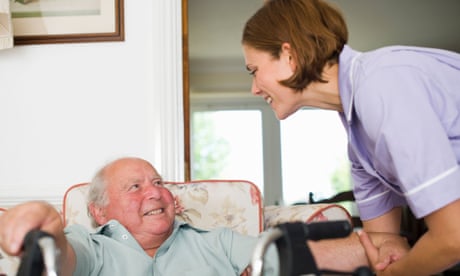Press/Media: Research
By 2025, the UK is expected to need up to an additional million homecare workers, with more and more older people needing care in their own home rather than hospital.
The shortage of homecare workers is a global problem, according to the World Health Organisation, and the picture from across the EU is of a job at the edge of healthcare, struggling to gain credibility and status. Almost half of UK employers surveyed found it difficult to recruit care workers. The consequences affect everyone, with shortages of homecare leading to “bed-blocking” in hospitals and the kinds of admissions crises we’ve seen over the winter.

The use of immigrant workers within the EU – with care assistants moving from low to middle or high income countries, so Poland to the UK or from Albania to Italy – has been seen as a partial solution, but is also a central part of the problem. Recent data from Italy show that the proportion of care workers who are not native Italians increased from 20% in 2001 to 81% by 2006, and only around 700,000 are formally employed, with the remainder working in the informal economy. There’s no EU-wide standard framework for these workers. Recruiters have no benchmark for good quality, resulting in problems in enforcing standards and preventing mistreatment of vulnerable people. Migrant workers find it difficult to access continuing professional development (CPD) training, and their existing skills are often poorly used. And there are still shortages, particularly in the low income countries which many care workers have left.
Care work needs to be made a more attractive and credible career option. That means professionalisation. There’s no reason why trained, experienced homecare staff can’t progress through to professional healthcare roles such as clinical support workers, nurses or physiotherapy - but there needs to be a bridge to make it happen. Employees can see a serious, professional future that’s worth working towards; employers get more applicants, and more motivated staff; and older people and patients get more committed, longer-term relationships with people who have a genuine stake in caring.

Work is underway on an EU-wide project to help transform the nature of homecare work, professionalising the role, improving status and standards, and encouraging more recruits: Helpcare - healthcare workers employability learning and professionalisation. Funded by the EU’s Erasmus+ scheme, the project will be led by Lancaster University management school with partners from Greece, Poland, Italy and Bulgaria. We’ll be approaching those involved in homecare and healthcare for older people, including those in the informal economy and family carers.
To begin with, that will mean setting up a framework for the professionalisation and regulation of care work that can be adopted across the EU. We’ll need to work alongside those currently providing home and healthcare services, vocational education and training establishments, and homecare commissioners to develop the right model of practical, cooperative CPD and training. This means capturing best practice from providers where professional status is already part of what they do, and also looking at cooperative approaches to help voluntary carers, undeclared labour and low-wage employees band together to access training. We need a clear skills map and career pathways for all care workers – what’s needed, how, and where will those skills take me?
The project doesn’t want to impose thinking from on high. Plans include research among the target groups about their experiences and barriers to training and building a career, especially the large proportion of women from migrant communities – many of which will have zero-hours contracts, work irregular hours, or be undeclared labour without access to support.
Along the way, Helpcare also aims to set up a transnational network for the service commissioners, policy makers and education and training providers that provide a basis for sharing best practice throughout the EU, making sure the standards and opportunities are consistent.
We have to break the vicious circle of low status homecare work. The elephant in the room is how a professional workforce is paid for, including CPD and higher salaries. But we already know the cost of low-quality healthcare, the lost taxes from undeclared labour, the drain on resources from older people unable to live in their own home, the health risks from low levels of training and care. Professionalisation is the only way forward.
Carolyn Downs is a lecturer at Lancaster University Management School. For more information on Helpcare contact c.downs@lancaster.ac.uk
| Title | The vicious circle of low status homecare work must be broken |
|---|---|
| Degree of recognition | International |
| Media name/outlet | Press |
| Date | 5/03/15 |
| Producer/Author | Carolyn Downs |
| Persons | Carolyn Downs |
Better pay for care workers: up-front costs but long-term gains